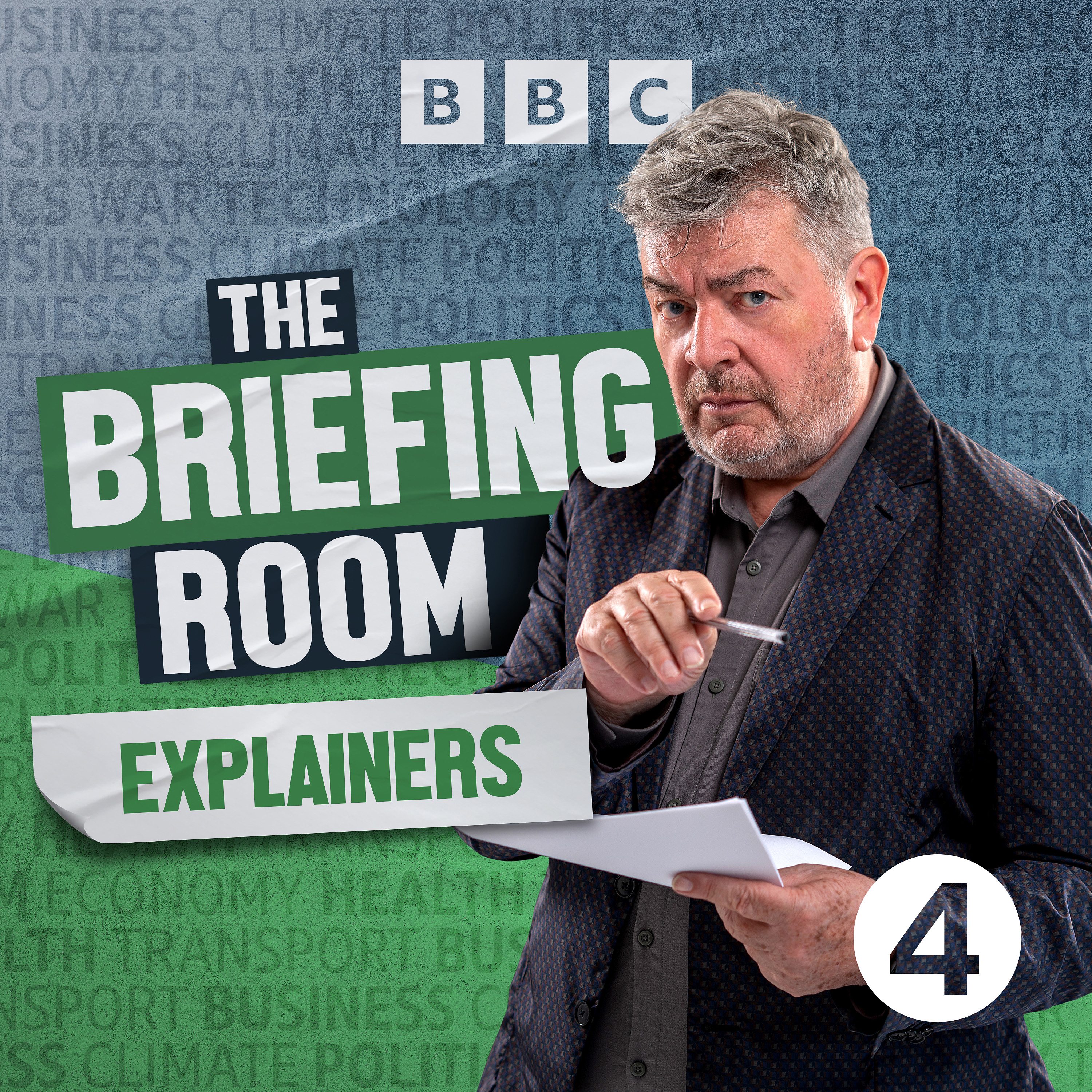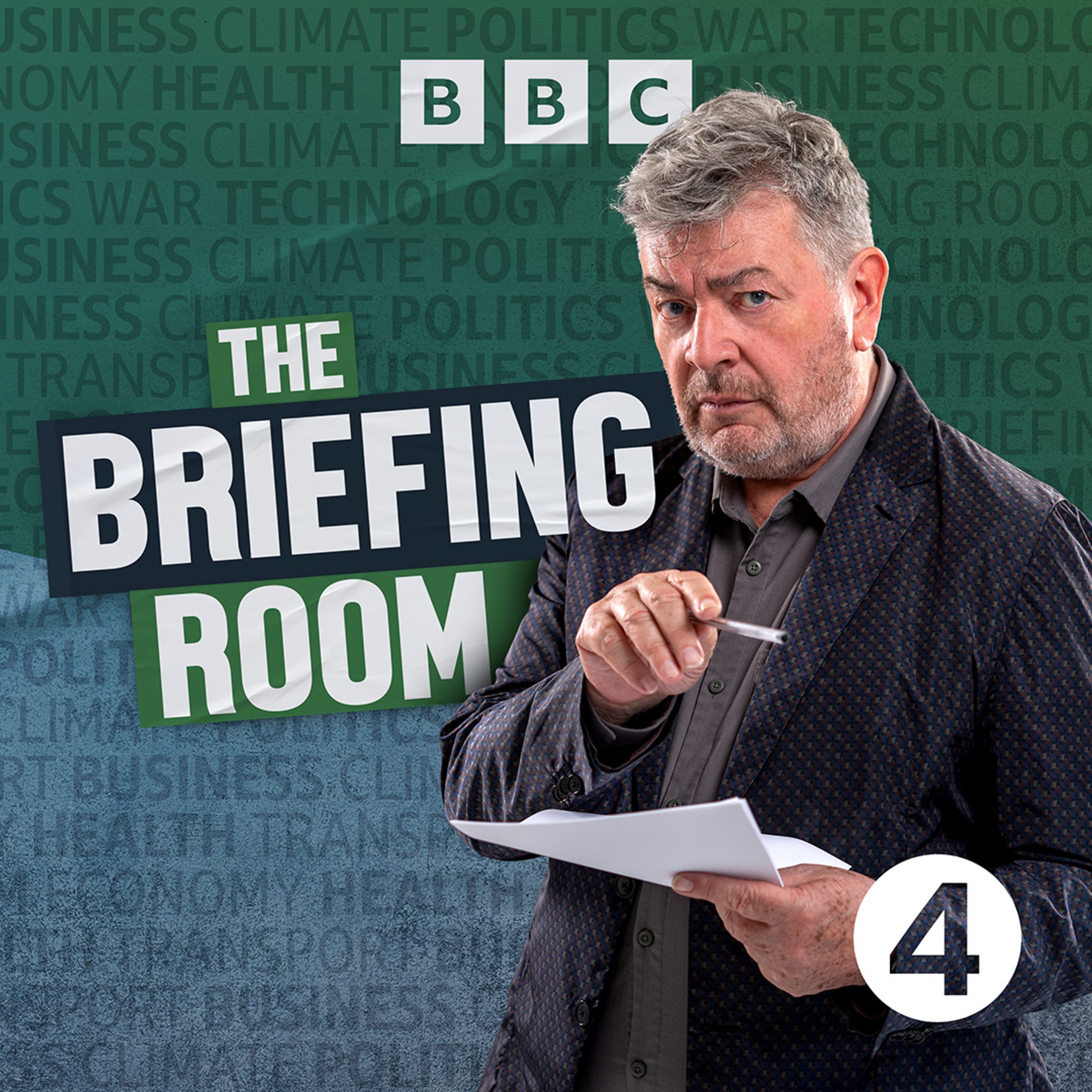
Deep Dive
- McKinley Tariff of 1890
- Period of industrial expansion in the US
- Political unpopularity of the McKinley Tariff
- Economic downturn in the 1890s
Shownotes Transcript
Hello, David here with a new series of explainers from The Briefing Room. In today's podcast, we look at the history of tariffs, something that has dominated the first few months of President Trump's second term. Where did he get the idea from? Ben Carter spoke to Douglas Irwin, Professor of Economics at Dartmouth College in New Hampshire in the United States.
Throughout his political career, Donald Trump hasn't had many kind words for his predecessors and rivals. Sleepy Joe Biden. Quote, cheating Obama. Crooked Hillary. She is a crooked one. These are just a few he's criticised over the years. But if you listened to Trump's second inauguration speech in January, you might have been surprised to hear him waxing lyrical about one former president. We'll restore the name...
of a great president, William McKinley, to Mount McKinley, where it should be and where it belongs. President McKinley made our country very rich through tariffs and through talent. He was a natural businessman.
William McKinley was a Republican politician from the state of Ohio, and he represented Ohio in the House of Representatives for many years, where he's chair of the House Ways and Means Committee, author of the McKinley Tariff. But he later, in the election of 1896, became president of the United States until he was assassinated in 1901. The McKinley Tariff came into law in October 1890.
Great Britain was an industrial powerhouse and the US was importing our iron and steel. It was also importing raw materials from Canada. Tariffs weren't new, but... This pushed tariffs in general a little bit higher. But we also put some goods on the duty-free list, such as sugar. But mainly most of these tariff acts in the late 19th century were sort of adjusting the rates, some up, some down, but on net higher in the case of McKinley.
They were used as much to protect domestic industries from foreign competition as to raise revenue, but they were definitely a part of the American political scene. At this time, tariffs raised about half the federal government's revenue. Excise taxes had been introduced in the Civil War, and the idea of introducing income tax was under discussion. As you heard earlier, Donald Trump said McKinley made our country very rich through tariffs. But was it actually McKinley's tariff that created this wealth?
Well, this was a general period of industrial expansion in the U.S. from after the Civil War right up to World War I. There were some ebbs and flows in the economy. A lot of the boom didn't happen right after the McKinley Tariff that took place in the later 1890s and then into the early 1900s. But there were a lot of other things going on during this period as well. We may have been relatively closed to trade because of the high tariffs, but we were very open to international capital inflows, such as British buying and financing the construction of railroads through their purchases of bonds.
We were open to immigration, so it was a period of mass immigration. A lot of workers came from Europe to the United States, adding to the labor force. It was a period of Western expansion. We were able to mine new raw materials, such as iron ore in Minnesota and copper in the Southwest.
And we were also open to British technology. So that kept the steel industry productive by borrowing the best practices from Britain. So we are closed on certain dimensions in terms of trade, but we're also open to this great expansion with an increase in capital, an increase in labor, and an improvement in technology. All these things were going on at the same time.
All that considered, was the McKinley tariff a success story? It proved to be very politically unpopular. And the Republicans lost in the midterm elections of November of 1890. They lost both the House and the Senate, I believe, on a fairly big route. And a few years later, there was a financial crisis in Britain, the Barings crisis that spread to the U.S. And the U.S. slumped into a depression in the 1890s where we hadn't
elevated unemployment rate of over 10% for about three or four years. And that was associated less with the tariff itself, but certainly it wasn't completely independent of it. And so it got tainted a little bit with the idea that it didn't lead to this wonderful economy. And during his time in politics, McKinley's views on tariffs evolved.
When he was president, he had a little bit of a different view than when he was just a representative from the state of Ohio. You sort of look more to a national constituency and what might be in the national economic interest. When you represent a particular district, you're really just concerned about workers and voters in your particular district. But as president, he took more of an expansive vision and thought that maybe tariffs should come down to promote U.S. trade in the rest of the world. So you might be wondering why Donald Trump is such a big fan of McKinley.
Douglas Irwin says it's probably because he's viewed as a Republican icon. Karl Rove, who served as deputy chief of staff for George W. Bush, wrote a book, 'Lording McKinley's Political Achievements'.
McKinley did win the 1896 and 1900 elections very convincingly. And in his Liberation Day speech, Donald Trump complained that post-McKinley... In 1913, for reasons unknown to mankind, they established the income tax so that citizens rather than foreign countries would start paying the money necessary to run our government.
The 1913 Revenue Act did see the introduction of income tax at a basic rate of 1% and a top rate of 6%. Only 2% of the population paid tax at all. This did not replace the income from tariffs, although the average tariff rate did drop from around 40% to 25%.
And there's another problem. One reason why the tariffs were sort of worked in the late 19th century as a revenue-raising device is the federal government was only spending about 2% of GDP. We didn't have a welfare state. We didn't have a big defence establishment. And so now government spending is just so large, there's no way you could tax imports and pay for all that spending. You really need a domestic tax source. Today, the federal government is spending around 25% of GDP, around $7 trillion a year.
Some estimates suggest that Trump's new tariffs will raise around $3 trillion over the next decade, which leaves a $67 trillion shortfall. Maybe Donald Trump understands all of this. Maybe he doesn't. But it's probably not unfair to say that trying to apply economic lessons from the 1890s and early 1900s to the globally intertwined economies of 2025 might prove problematic. Ben Carter talking to Douglas Irwin.
Thanks very much for listening to this explainer. We'll be publishing these every week in the new miniseries, so make sure you follow The Briefing Room on BBC Sounds or wherever you get your podcasts so that you don't miss an episode when we publish them. And also remember, you can go back and listen to any of our recent episodes on BBC Sounds. They're available now. Until the next time, goodbye.
I'm Annabel Dees, and from BBC Radio 4, this is Shadow World, The Smuggler. People coming to this country was making me successful. A year ago, I met a people smuggler, a British man who joined an international smuggling gang. I uncover his motivations and his methods.
I'm telling you now how easy it is. And investigates whether his tactics are still possible. That does leave a really exploitable loophole for individuals who want to do harm. Shadow World, The Smuggler. Listen now on BBC Sounds.
